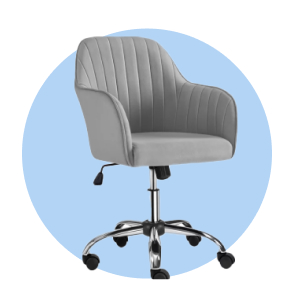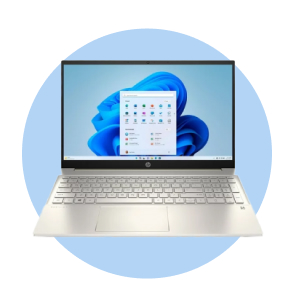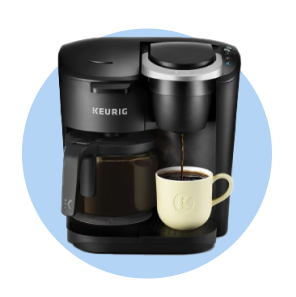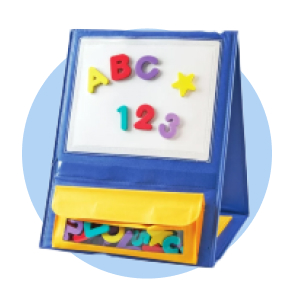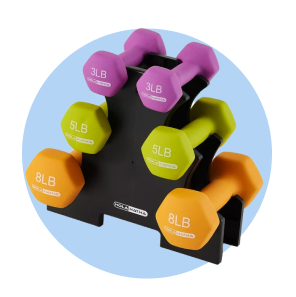
The Ultimate Guide to Office Computers: Features, Performance & Value
Versatile laptops & powerful desktops
When you’re shopping for office computers, there are almost countless possibilities. Should you get desktops or laptops? Which operating system will run the programs you need? How much money should you spend? What kind of hardware specifications should you look for?
Finding the right computer takes a mix of research and intuition. Before you start searching for the perfect machine, you should figure out which features you want, where you want to work and exactly how you intend to use the device. You should also familiarize yourself with some common computer terminology so that you can make informed decisions about a system’s processor, storage, RAM and other components. In the end, you should be able to find a model that fits your office’s workflow, budget and physical space.
If you’re ready to begin your hunt for the best office computers, then learn more about how Walmart Business can help you today.

Research the best features for business laptops
Many companies now allow employees to split their time between the office and home—or anywhere else they desire, as long as there’s a stable internet connection. Laptops are practical for this type of work, provided they can get the job done.
If you’re looking to invest in laptops for your staff, make sure they offer the following features:
Multitasking capabilities: A business laptop must be able to do everything a business desktop can do. That means it has to run at least a few programs simultaneously, including email clients, word processors and web browsers. A laptop’s ability to multitask is based primarily on its central processing unit (CPU) and Random Access Memory (RAM). The faster the processor and the more RAM available, the better a laptop will run overall.
Sufficient storage: Every laptop offers storage in the form of a solid-state drive (SSD) or hard disk drive (HDD). SSDs are faster and more reliable, but HDDs are usually less expensive. How much storage you need depends on what kind of data you store, so take some time to figure out how much space your usual file formats take up.
Sharp display: Laptop screens generally range between 11″ and 17″. Larger screens can be easier to work on but require bigger, heavier machines to house them. Something in the 13″ to 15″ range provides the best balance between weight and screen size, just make sure it offers 1080p resolution for the clearest images. This is also called full high definition or FHD.
Portable design: A laptop is only as good as your ability to take it with you. Look for thin, lightweight machines with long battery lives. That way, employees can work just about anywhere for hours on end, even if they can’t find an outlet.
For more information on what to look for in a business laptop, check out The Best Business Laptops Have These 4 Features.
Determine whether laptops are right for your organization
Laptops are a good fit for many businesses, but traditional desktop computers have their own advantages. Before you invest in laptops for your organization, you should ask yourself a few pertinent questions:
Where will my employees work? If you have hybrid or remote employees, they probably would do better with laptops. Similarly, if employees travel often or meet with clients frequently, laptops are a smart choice. On the other hand, if your staff works in the same spot in the same office every day, desktops are probably a better choice.
Can we run the software we need? Since laptops are smaller than desktops, they often don’t have enough physical space to include top-tier components. If your company just needs email and spreadsheets, laptops should be fine. If you need sophisticated analysis or design software, a desktop might run it more easily.
Are laptops secure from cyber threats? While every computer is potentially vulnerable to cyber crime, laptops are at greater risk. Laptops tend to move around a lot and can connect to all sorts of different networks, including unsecured public WiFi hotspots. If you want to equip your staff with laptops, you should have a good cybersecurity plan in place first.
What’s our budget? All other things being equal, a laptop is usually more expensive than a similarly capable desktop. It’s not worth going beyond your budget to provide laptops, especially if desktops would serve just as well.
If you’re still on the fence about whether laptops are the best fit for your employees, read 5 Factors to Consider Before Investing in a Business Laptop.

Get a laptop for both work & personal use
One potential benefit of laptops is that they’re not strictly office computers. Entrepreneurs and small business owners may find it useful to get a single laptop for both work and personal projects. For the most part, a personal laptop needs exactly the same features as a work laptop: a powerful CPU, plenty of RAM, a long-lasting battery, a decently sized display and a lightweight design.
However, there’s one other big consideration for personal laptops: connectivity. At home, you may want to hook up your laptop to an external mouse, keyboard, monitor and speakers. That means you’ll want a machine with plenty of USB ports and a strong Bluetooth connection. Bear in mind that many modern laptops use USB-C ports for charging as well, so think carefully about how many devices you’re likely to hook up at once.
Read 4 Features of the Best Laptops for Business & Personal Use to see how you can buy a single laptop that serves two purposes.

Leverage laptops to grow your small business
The best small business laptops share many of the traits we’ve already discussed: powerful components and portable designs. You may also need a few extra ports that not every model offers:
USB-A: While USB-C is becoming the gold standard for external connections, you’ll still find USB-A devices in just about every workplace—especially thumb drives. Having a laptop with a USB-A port is easier and more reliable than carrying around a USB-C adapter everywhere.
HDMI: Small business owners often rely on visual aids for customers, vendors and potential investors. Since laptop screens are (usually) small, having a built-in HDMI port is a great way to share images on a larger screen. Some newer devices offer wireless screen mirroring, but an HDMI connection is much more foolproof.
SD card: Even in an age of widespread cloud storage, SD cards are a simple, inexpensive and secure way to move large files from place to place. If your laptop doesn’t have an SD card reader, you might have to rely on a cumbersome adapter instead.
Learn How to Select the Best Laptop for Your Small Business by following a few simple tips.

Invest in optimized desktop computers
If laptops aren’t practical for your business, then consider purchasing desktop models instead. While desktop computers aren’t as mobile as laptops, they do offer a few advantages over their clamshell counterparts. Desktops tend to be less expensive than laptops with comparable power. They also come in a variety of shapes and sizes. To find the right desktop for your organization, consider the following factors:
Performance: Like laptops, desktops also require a CPU, RAM and storage. The better-quality components you can afford, the better your overall performance will be. Some desktops also have discrete graphics processing units (GPUs), which can be important in graphic design and animation.
Operating system: Microsoft Windows and Apple macOS are the two most common operating systems (OSes) in the business world. Each one has strengths and weaknesses. Check to see which OS supports the software you need and which one your staff is more comfortable with.
Brand: Because desktops are easier to build than laptops, there are dozens of boutique desktop manufacturers in addition to the big names. Rather than starting your search with a particular brand in mind, consider which components and features you need. Then, see which brands offer them.
Style: From unobtrusive mini PCs to traditional towers, desktop computers come in a far wider array of styles and configurations than laptops. To simplify the buying process, you could consider all-in-one PCs, which combine a computer, a monitor and a set of speakers.
Check out Business PCs: A Buyer’s Guide for more detailed information about desktop components, pricing and use cases.
Find the right office computers for your business with Walmart Business
Whether you want a powerful desktop PC or a sleek laptop, Walmart Business has office computers that can take your company’s technology to the next level. When you sign up for a free Walmart Business account, you’ll be able to buy products in bulk and see your order history for both in-store and online purchases. You can also share your account among multiple users and save your company’s preferred payment options.
If you already have a Walmart Business account, then upgrade to a Walmart Business+ membership. Members receive free shipping on Walmart.com1 as well as free delivery from local Walmart stores on orders of $35 or more.2 You also earn 2% in Walmart Business Rewards on purchases of $250 or more.3 These savings could add up to more than $500 per year.4
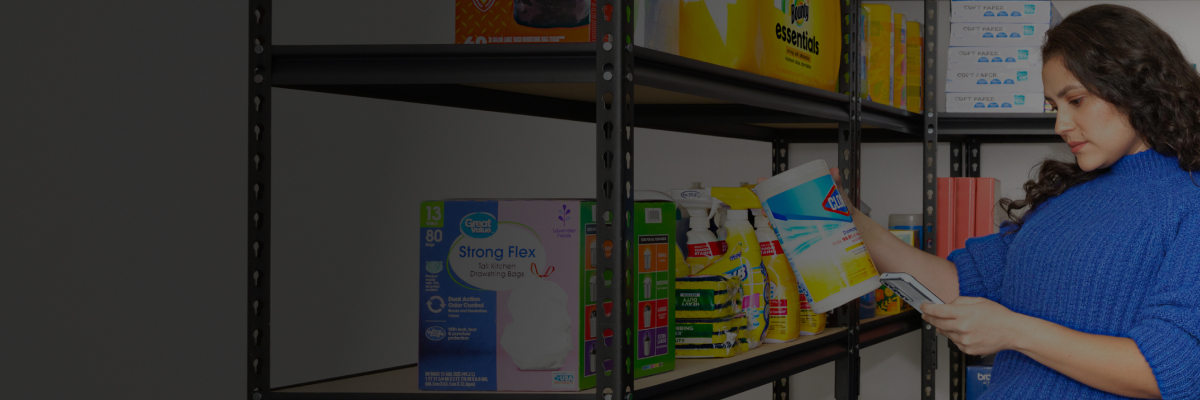

Limited-time offer
Unlock your special promo code
Stay informed on Walmart Business news & get $20 off a $100 purchase!1
1Minimum order of $100. Promo code can be used one time & may not be combined with other offers. Offer not transferable & void where prohibited by law. Customer responsible for all applicable taxes. Offer expires 12/31/2025 at 11:59pm PT. Further restrictions apply. See terms at checkout for details. Promo code offers available in limited quantities. While supplies last.
1 Excludes most Marketplace items, freight and certain location surcharges.
2 Restrictions apply.
3 Rewards can only be used toward future purchases on Walmart Business. Additional terms apply.
4 Savings based on 1 free $35+ delivery order vs. $9.95 fee and 1 free shipping order under $35 vs. $6.99 fee biweekly, plus 2% Walmart Business Rewards on monthly order >$250 (average value of $400).
Exciting news awaits
Hear firsthand about new products, features & promotions.
By clicking submit, you agree to receive emails about Walmart Business and acknowledge you have read and agreed to our Terms of use and Privacy Policy.



